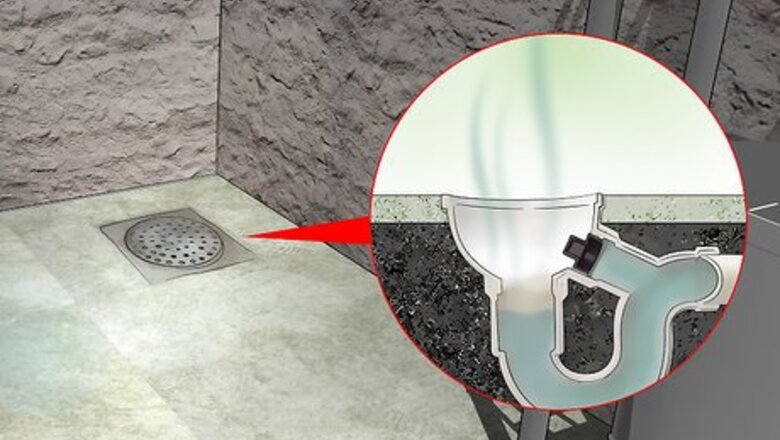
views
Locating the Source of the Smell
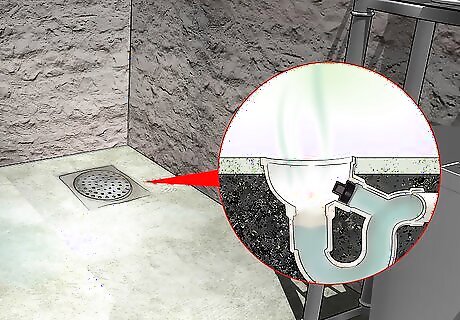
Look at the drains in your basement. Sinks, floor drains, laundry tubs, or wash basins can dry out if they aren’t used regularly. The water under the trap will eventually evaporate with disuse. Without water, sewer gas will leak out of the drains, which will spread throughout your basement over time. You can correct this problem by pouring water and cooking oil into the drains.
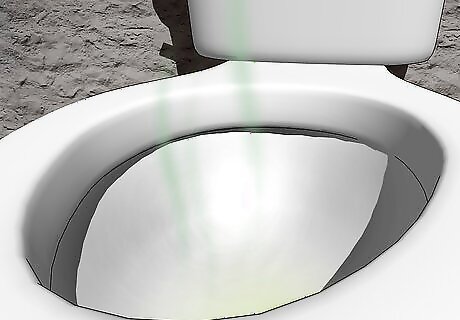
Check out the toilets. If you haven’t used your basement toilet for several weeks or months, the water in the trap may have evaporated. As it is with the drains, sewer gas can rise up and leak out of the toilet. The solution to this problem is simple, though. You just need to flush the toilet replace the evaporated water.
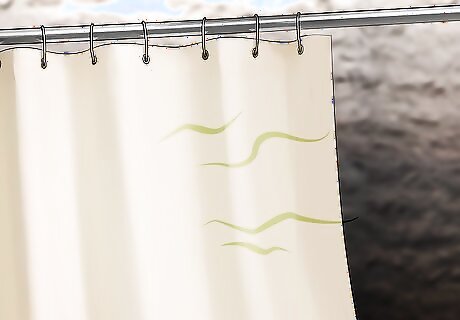
Smell the fabrics in your basement. Due to the increased humidity in basements, fabrics often absorb a lot of moisture. The fabrics may begin to smell if they aren’t cleaned often enough. Walk around and smell any fabrics in your basement. This could mean furniture, clothing, blankets, etc. If the fabric smells musty, it will need to be cleaned or thrown out.
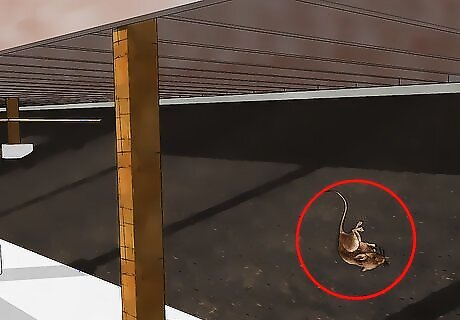
Look behind walls and into crawl spaces. Check behind your basement walls and in your basement's crawl spaces. Look for black mold and any dead (or alive) pests. Even if you don’t find a source, there may still be a musty smell from the humidity.

Check the ceiling tile and small nooks. Look at the ceiling tile for any signs of mold. Look in the grout of the ceiling tile as well for discoloration. While you are checking, look into any nooks and grannies of your basement for mold or dampness.
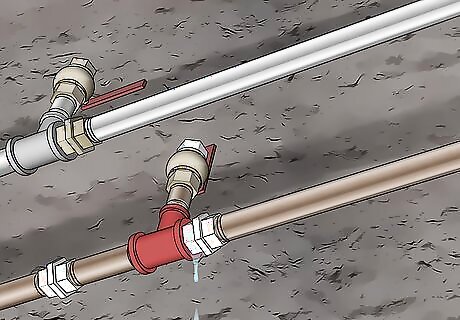
Inspect the pipes for leaks. Leaks are a common culprit for basement odors. Walk around your basement and check out all of the pipes. Look at the joints to see if water is dripping or appears to have been leaking. Leaks can often be hard to detect, so call in a professional if you are unsure.
Eliminating the Odor
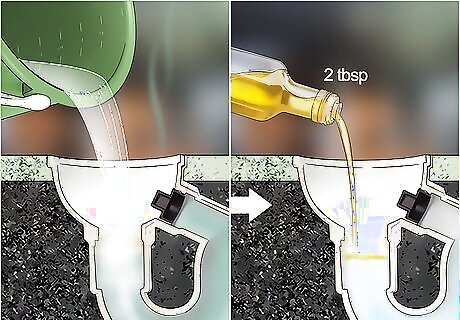
Pour water or cooking oil into drains. Getting rid of the sewer smell emitting from drains can usually be taken care of by pouring a pitcher of water down the drains. After you add the water, pour 2 tablespoons (30 ml) of cooking oil down the drain. The cooking oil will act as a seal to prevent the water from evaporating quickly. Pouring vinegar down the drain can also help eliminate any unpleasant smells.
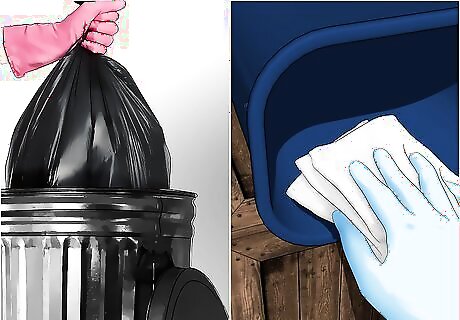
Remove all mildewed and moldy objects. When you've discovered the source of the musty smell in objects, you have 2 choices: try to clean out the mildew and mold smell from everything infected by it, or simply to throw away whatever has the smell embedded within. If you are unsure whether or not the object can be saved, try to clean it. If the smell is still there, it is probably time to throw it out.

Store books and papers in airtight containers. Cleaning out the musty smell from books and papers can be very difficult. If you keep them, the smell will permeate the basement again, undoing much of your work in cleaning it. If you don't want to throw them away, you'll need to keep them in an airtight container or find a new location to store them. You can find airtight containers at most storage stores. If you don’t have a lot of space, another option would be to rent a small storage unit.
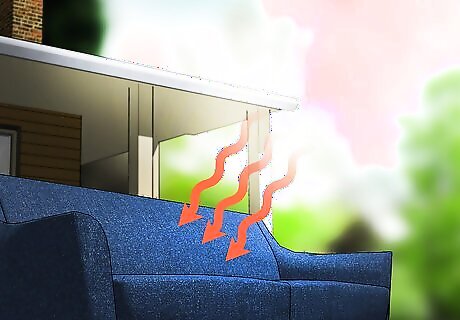
Air out the furniture. If the musty smell is embedded into objects like furniture and rugs, you'll need to take them outside when the weather is dry. Ideally, when the sun is out and humidity is low. Allow them to be aired out and sun-dried for a few hours and, if possible, give them a few good hits with a broom to free dust and other particles that might carry the smell as well.
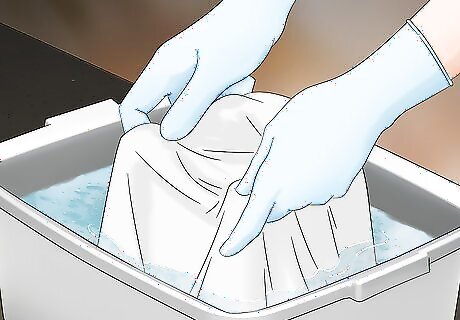
Clean fabrics. If the furniture and rugs are still smelly, scrub them down with a fabric cleaner, which can be bought at many supermarkets. If you have clothes, towels, or blankets that smell, soak them in an all-fabric bleach for 30 minutes. Or, put them into the washing machine on a normal cycle. Sometimes, even airing out and cleaning will not kill the smell. In this case, it might be easier and more convenient to just start over by purchasing new carpeting and furniture for your basement.
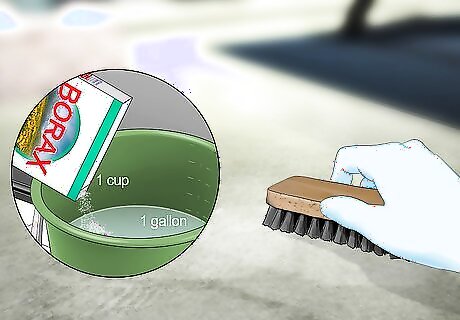
Clean with borax. Borax is a natural mineral cleaner that kills fungus. That is why it is a perfect cleaner for basements. To use, pour 1 cup (240 ml) of borax and 1 gallon (3.8 L) into a bucket. Then, use a brush to scrub the walls and floors with the solution. Follow the cleaning by rinsing with water to remove borax residue.
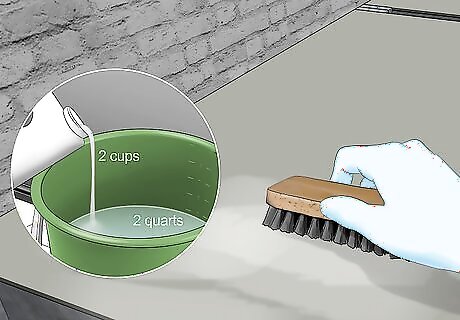
Remove stains with bleach. Bleach is helpful when it comes to removing stains that the borax couldn’t remove. Mix 2 cups (470 ml) of bleach and 2 quarts (1.9 L) in a bucket. Use a brush to scrub any visible stains. The bleach will remove the color from the stain and sanitize the area. If you have windows in the basement, open them up while using bleach. Or, bring a fan into the basement. Wear protective gloves and a face mask before using bleach. Wearing old clothing or putting on an apron is a good idea as well if you don’t want to ruin your clothes.
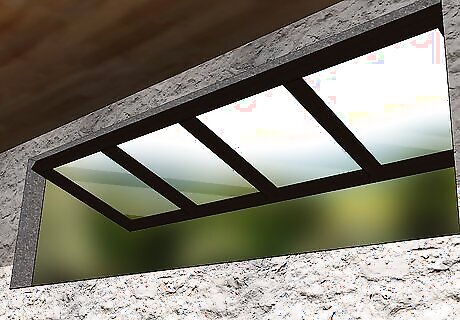
Deodorize and ventilate your basement. After the basement has been scrubbed down, bring in some fresh air to aid in the drying process. If you have windows, open them up. If you don't have windows, open your basement door and place a fan downstairs to help with air circulation.
Preventing Odors
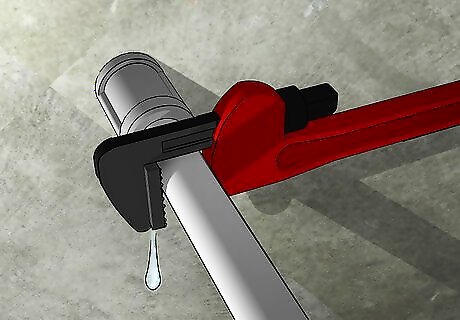
Make sure you fix the initial cause of the smell. For example, if you have a leaky pipe, make sure you get that fixed. Or, if you find a pest problem, deal with it as soon as possible. Call in a professional if there is still an odor, but you can’t identify the source.
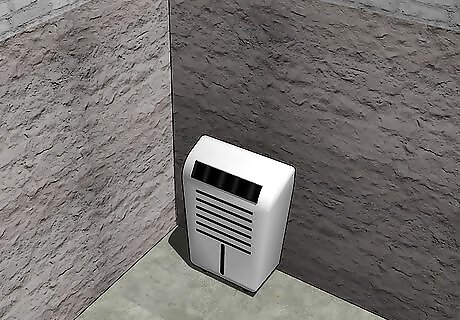
Get a dehumidifier. Dehumidifiers can be bought at home improvement stores and at some supermarkets. A dehumidifier will prevent excess moisture in your basement. A dry environment in your basement will keep mold and mildew from forming.
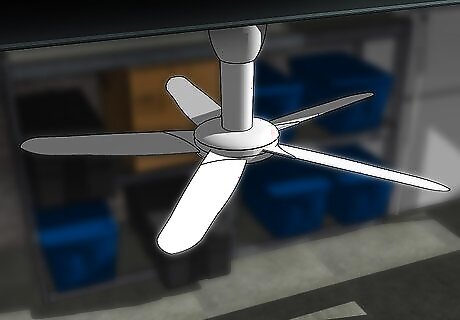
Install a ceiling fan. A ceiling fan can also keep your basement from retaining too much moisture. If possible, install a ceiling fan into your basement. If the basement is very large, install a couple of ceiling fans. Run the ceiling fans for a few hours a day and while you are in the basement.
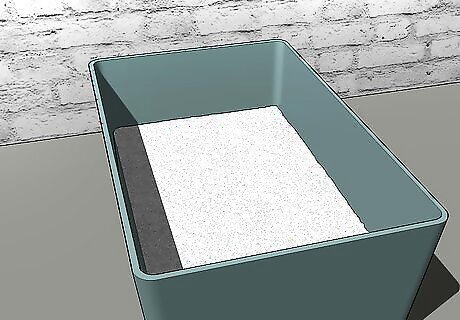
Set out odor absorbers. A few odor absorbers to choose from are baking soda, cat litter, and charcoal briquettes. Choose a bucket or large container and fill about half of it with the absorber of your choice. You can use multiple buckets if you wish. Leave the bucket in your basement, and replace it once a month to reduce mildew problems.

Connect the basement to your home ventilation system. If your basement is not connected to your air conditioning system, it would be a good idea to do so. Adding a ventilation system will keep the humidity out of your basement. Keep in mind, however, that adding your basement to the ventilation system will likely be costly.











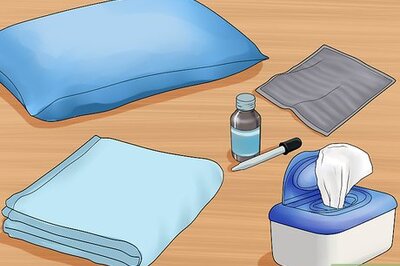







Comments
0 comment